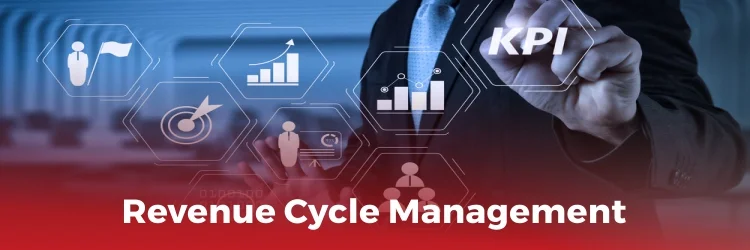Best Practices in Revenue Cycle Management? What does that mean? Regarding Healthcare Practices, Revenue Cycle Management is the process of tracking and collecting patient revenue. It begins with the first appointment with the healthcare provider and completes when the provider is delivered the final payment. "Best Practices" refer to the providers receiving the maximum payment for their services. This might sound a bit cold-blooded, but there are many twists and turns in the payments for Healthcare BPO services. Payments made by the patient, their insurance carrier, government agencies like Medicare and/or Medicaid, and discounts allowed by the provider. The Healthcare Financial Management Association (HFMA) is an industry-supported entity: “The Healthcare Financial Management Association builds and supports coalitions with other healthcare associations and industry groups to achieve consensus on solutions for the challenges the U.S. healthcare system faces today. Working with a broad cross-section of stakeholders, it identifies gaps throughout the healthcare delivery system and bridges them through the establishment and sharing of knowledge and best practices” they also bill themselves as “a leader in the complex and crucial field of healthcare finance.” (Wikipedia). Healthcare systems are concerned with Medical Billing, Healthcare Practices, and the Healthcare Industry as a whole.
But healthcare suffers from uncollectible debts and poor financial performance. Changes in the funding of the government agencies involved in supplementing a patient's medical bill, both federal and state, substantially change the financial burden for the patient. The skyrocketing rise of healthcare costs, insurance premiums, and deductibles impacts everyone, including the healthcare provider.
Since the beginning of ICD-10, medical practitioners have been required to undertake hours of ICD-10 training so they are competent in the new medical coding system.
ICD-10, the International Classification of Diseases, is a medical coding system chiefly designed by the World Health Organization (WHO) to catalog health conditions by categories of similar diseases under which more specific requirements are listed, thus mapping nuanced diseases to broader morbidities. This allows tracking public health conditions (complications, anatomical location) and Improved data for epidemiological research (severity of illness, comorbidities). Measuring outcomes and care provided to patients.
Best Practices To Improve Revenue Cycle Management
All of the above information makes it vital that healthcare providers understand how they can best manage their revenue cycles efficiently. Here are a few steps:
- HIPPA - Healthcare organizations must adhere to HIPAA compliance standards. HIPAA requires medical codes used by coders and billers and dictates that healthcare providers and medical billers covered by HIPAA submit claims electronically using an approved format.
- Expertise in Service Providers - Medical billing and coding have become an industry unto themselves. And it's a time-consuming, labor-intensive chore, usually too cumbersome to be supported by any in-house staff. ICD-10 is a complex regimen that is not easily mastered. While a boon for patients wanting to understand what they're paying for, providers depend on third-party vendors.
- Information - Solutions for communicating a patient's medical information across various healthcare sectors is one development that is rewriting healthcare operations. The Health information exchanges have grown exponentially in fulfilling this role.
- Business v. Clinical - The Healthcare industry strives to improve clinical results, constantly training and demonstrating advances to colleagues. But the business side of healthcare, non-medical services like Insurance verification, billing, payments, collections, and the rest are part of the revenue cycle. The separation between the two must be maintained.
- Patient-Centered Approach - Any medical practice depends on efficient billing and payments. A high reimbursement level is always the goal for these third-party billing partners. This frees healthcare providers from spending time with patients, not revenue cycle management.
- Patient experience - The heart of the healthcare industry is the patient. Everyone in the field works to make the patient whole after a disease or accident. While that’s a goal, the journey to that goal is also essential. There must be a balance between caregiving and commerce.
- The Cycle - The AMA (American Medical Association) has stated that up to 10% of insurance claims are unpaid. Overall, that is a tremendous amount of money lost to the healthcare industry. Any healthcare professional would be overjoyed at being able to recoup 10% of their billing.
- Predictable cash flow - There's a breaking point to individual practices or hospitals managing their Revenue Cycles. This comes as experts in RCM become so expensive that few organizations can afford to retain them.
Best Practices? You Bet.
Of course, not losing money in any endeavor is a goal. Efficient Revenue Cycle Management seeks to capture the things that slip through the cracks. The options for how this is accomplished are shrinking. As the system becomes more complicated, more hospitals and medical practices turn to third-party billing entities. In turn, those Medical BPOs have sharpened their skills and capabilities.
Efficient RCM is possible at an affordable price. Rely Services, a BPO with over 20 years of experience in this field, can explain how it's possible to make Revenue Cycle Management work for you.

Leave A Reply